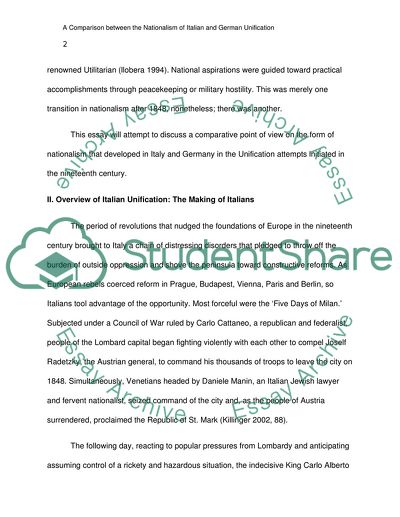Cite this document
(“Nationalism in Italian and German Unification, 1815-1871 Essay”, n.d.)
Retrieved from https://studentshare.org/history/1553800-nationalism-in-italian-and-german-unification-1815-1871
Retrieved from https://studentshare.org/history/1553800-nationalism-in-italian-and-german-unification-1815-1871
(Nationalism in Italian and German Unification, 1815-1871 Essay)
https://studentshare.org/history/1553800-nationalism-in-italian-and-german-unification-1815-1871.
https://studentshare.org/history/1553800-nationalism-in-italian-and-german-unification-1815-1871.
“Nationalism in Italian and German Unification, 1815-1871 Essay”, n.d. https://studentshare.org/history/1553800-nationalism-in-italian-and-german-unification-1815-1871.


